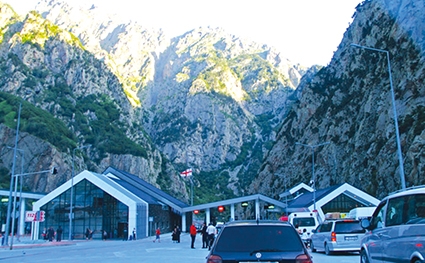Georgia’s Breakaway Territories within the Regional Perspective
Analysis
This year marks 10th anniversary of the Russo-Georgian war of 2008 and the recognition by Moscow of Abkhazia and Samachablo (the so-called South Ossetia). A philosophical question is often always heard in the analytical community as to how Tbilisi would return the breakaway territories under its control.
In international relations, it has always been about the balance of power. We should consider the issue of Georgia’s breakaway territories within the regional or even global picture. True, it is important what the minorities in Abkhazia and Samachablo think about their place in a reunited Georgia. However, their potential willingness to live within Georgia will be influenced by what is going on in the larger region overall; how the power balance shifts and what will happen in Russia, which serves as Sokhumi’s and Tskhinvali’s patron.
Georgia is much stronger both economically and militarily than what it was decades ago, but Russia is stronger in almost every component. We could be more attractive in providing the Abkhazians and Ossetians free education, healthcare etc., but it is still very unlikely that Moscow’s influence will be significantly undermined in this way.
What matters more is to understand in what direction Russia’s position is evolving in the Eurasian landmass. There are long-term indications that Russia is falling increasingly behind the European Union for the crucial land corridor from the Baltic to the Black Sea. Ukraine and its open antagonism towards Russia since 2014 is a primary example in this discussion.
But it also matters that Moscow, in order to keep the borderlands under its geopolitical influence, facilitated numerous breakaway conflicts where Abkhazia, Samachablo, Transdnistria and the Donbas are indirectly supported. This became a whole web of statelets, the support for which has become strenuous. The financial brunt for Russia is important, but the ability to respond to so many theaters simultaneously is a definite challenge.
Take the example of Transdnistria. With Ukraine antagonized, Russian troops now no longer enjoy the ability to reach the breakaway land. Samachablo is yet another case. It is so much cut into the heart of Georgia, and therefore so open to potential military action, that the Russians will always have to think about reinforcements. For the Russians, the demarcation line in between Samachablo and the rest of Georgia poses a significant challenge as there are few geographic barriers the Russians could rely on to build a veritable defensive line. The fences in fact zigzag across low mountainous area and small rivers, making it uncomfortable to defend from a purely military posture.
Yet, the problem is larger than that. Samachablo is separated from Russia by the Greater Caucasus mountains. Geographically, it will never be a part of Russia, nor connected to Russia economically. We might be worried as to what will happen to Tskhinvali and whether Ossetians want to be again with Tbilisi, but the geography dictates that this breakaway region cannot actually “be with” Russia.
On a much higher geopolitical level, Russia is experiencing tough economic issues as well as significant western pressure. There is a certain possibility that this pressure will not abate in the long-run. Moreover, as I already wrote in previous editions for GT, Russia faces a far larger problem on its western borderlands than just the EU and US influence. Ukrainian nationalism could possibly isolate Russia from eastern Europe to the farthest spaces of the Eurasian continent.
Thus, when one considers the problem of breakaway Abkhazia and Samachablo, we need to put the issue within the larger picture of Russia-West relations. The tilting balance of power towards the West might be a good indicator of the things to come, namely, the gradual decline of Russia’s influence across Eurasia.
Seeing these trends from Tbilisi, the country’s road towards EU/NATO should remain unchanged. This is based not on the thinking that that Europe is just culturally closer to us, but on pure geopolitical calculations where the stronger wins, and that is West, not Russia.
By Emil Avdaliani











